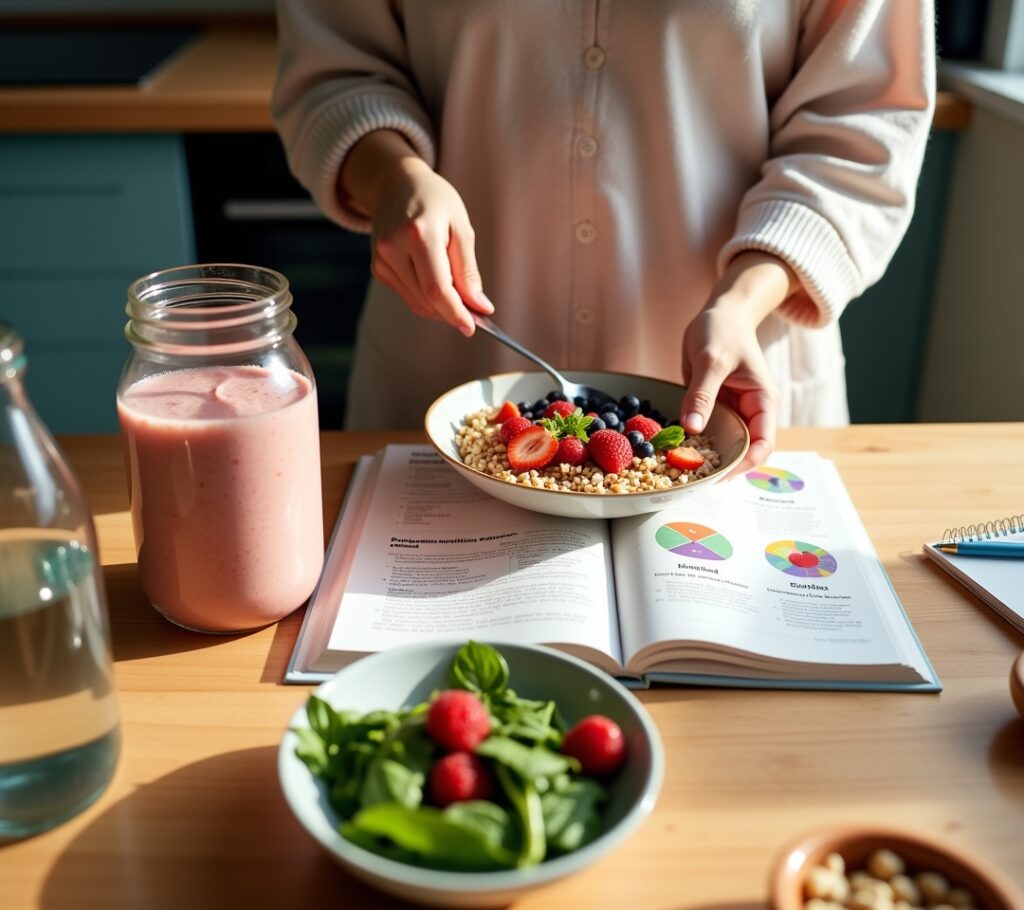The Real Deal on Postpartum Nutrition: What Nobody Tells You
Here’s something that’ll blow your mind: your body burns about 500 extra calories per day just from breastfeeding alone! Yet somehow, I found myself surviving on leftover pizza crusts and lukewarm coffee for the first few weeks after having my daughter. Talk about priorities gone wrong.
I’m Valery, and let me tell you – postpartum nutrition is one of those topics that gets glossed over way too much. Everyone’s focused on the baby’s feeding schedule, but what about mama’s? Your body just did something incredible, and it needs proper fuel to heal, produce milk, and keep you functioning like a semi-normal human being.
Why Your Body is Basically Running a Marathon (Even When You’re Sitting)

The fourth trimester is no joke, folks. Your body is working overtime to recover from childbirth, establish milk supply, and regulate hormones that have been on a nine-month rollercoaster ride. I remember feeling like I was constantly starving – turns out, there was a good reason for that!
Breastfeeding moms need an extra 300-500 calories daily, but here’s the kicker: quality matters more than quantity. I learned this the hard way when I was downing sugary snacks and wondering why I felt like garbage. The CDC recommends focusing on nutrient-dense foods rather than empty calories.
The Postpartum Plate: What Actually Works
Forget those complicated meal plans you see on Instagram. Real postpartum nutrition is about making smart choices that you can actually manage with a baby attached to your hip. Here’s what saved my sanity:
- Protein at every meal: Eggs, Greek yogurt, nuts, and lean meats help with tissue repair and keep you satisfied longer
- Iron-rich foods: Spinach, lentils, and red meat help replenish what you lost during delivery
- Healthy fats: Avocados, salmon, and olive oil support hormone production and brain function
- Complex carbs: Oatmeal, quinoa, and sweet potatoes provide steady energy (trust me, you need it)
I’ll be honest – meal prep felt impossible those first few weeks. But batch cooking things like overnight oats and freezer smoothie packs became my lifeline. Sometimes you gotta work smarter, not harder.
Hydration Station: More Than Just Water
Water is obviously crucial, especially if you’re breastfeeding. I kept a giant water bottle next to my nursing chair and chugged it like my life depended on it. But here’s something interesting: the American College of Obstetricians and Gynecologists notes that your fluid needs increase significantly during breastfeeding.
Beyond plain water, I found coconut water helped with electrolyte balance, and herbal teas (like red raspberry leaf) were soothing. Just avoid anything with too much caffeine – your baby doesn’t need to be more wired than they already are at 3 AM.
The Supplement Situation: What’s Actually Necessary
Everyone and their mother will tell you about different supplements. Here’s what actually made a difference for me: continuing my prenatal vitamin, adding a quality omega-3 supplement, and making sure I got enough vitamin D (especially during those winter months when leaving the house felt impossible).
Iron was another game-changer. My levels were pretty low after delivery, and I felt like I was dragging myself through molasses. Always check with your doctor first, but don’t suffer in silence if you’re feeling unusually tired.
Real Talk About Comfort Foods and Guilt
Let’s address the elephant in the room – sometimes you’re gonna eat that donut. Or three. And that’s okay! I spent way too much energy feeling guilty about not eating “perfectly” when I should’ve been focusing on recovery.
The goal isn’t perfection; it’s progress. Some days, a peanut butter sandwich and an apple is a win. Other days, you might manage a balanced meal with all the food groups. Both are totally valid in the postpartum world.
Your Journey, Your Rules
Every mama’s postpartum journey looks different, and what works for one person might not work for another. Maybe you’re dealing with food aversions, maybe you’re struggling with supply issues, or maybe you’re just trying to figure out how to eat with one hand while holding a baby.
The most important thing is listening to your body and being kind to yourself. You’re doing an incredible job, even when it doesn’t feel like it. Remember that good nutrition is just one piece of the puzzle – rest, support, and patience with yourself matter just as much.
If you found this helpful, I’d love for you to stick around and check out more posts on Valery Teddybear. We’re all figuring this parenting thing out together, and sometimes it helps to know you’re not alone in the beautiful chaos of it all.


